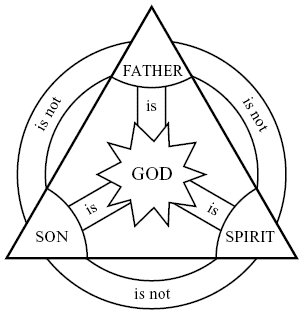Can Evil Spirits Read Minds? What Scripture Actually Teaches
Ever worried Satan or his demons can see your thoughts? Perhaps you’ve had a sinful thought and immediately felt exposed, as if dark spiritual forces could peer into your mind. The fear troubles many believers, but Scripture provides clarity on this important question.
In this post, we’ll examine what the Bible actually teaches about evil spirits’ ability to know our thoughts, and how this understanding can bring comfort while helping us remain vigilant in spiritual warfare.
GOD ALONE KNOWS THE HUMAN HEART
Scripture consistently affirms that only God possesses complete knowledge of human thoughts. This divine attribute belongs exclusively to Him: “…for you alone know the hearts of all mankind.” (1 Kings 8:39)
The Psalmist beautifully describes God’s intimate knowledge of our inner life: “O LORD, you have searched me and known me! You know when I sit down and when I rise up; you discern my thoughts from afar… Even before a word is on my tongue, behold, O LORD, you know it altogether.” (Psalm 139:1-4)
Jeremiah further confirms: “I the LORD search the heart and test the mind, to give every man according to his ways, according to the fruit of his deeds.” (Jeremiah 17:10)
These passages establish a crucial truth: the ability to know human thoughts completely is a divine attribute that belongs to God alone. No created being—including Satan—shares this power.
SATAN’S REAL LIMITATIONS
Unlike God, Satan is a created being with significant limitations. The book of Job illustrates these boundaries clearly. Satan needed God’s permission to act against Job and could only operate within divinely established parameters (Job 1-2). This hardly describes an all-knowing being!
In Genesis 3, Satan’s tactics against Eve reveal his methods. He didn’t directly access her thoughts but instead used external questioning and deception. If Satan could read minds, such roundabout tactics would be unnecessary.
Scripture never attributes mind-reading abilities to Satan or demons. Instead, the Bible consistently portrays Satan working through observation, suggestion, and deception—methods that don’t require telepathic powers.
HOW EVIL SPIRITS ACTUALLY WORK
If Satan can’t read minds, how does he seem so effective at precisely targeting each of our weaknesses? Scripture reveals several methods:
- Careful Observation: “Be sober-minded; be watchful. Your adversary the devil prowls around like a roaring lion, seeking someone to devour.” (1 Peter 5:8). Satan observes our habits, reactions, and behaviours. Through careful attention to patterns in our lives—what triggers anger, pride, or temptation—he can predict vulnerabilities without reading minds.
- Exploiting Known Weaknesses: Jesus’ temptation shows Satan targeting specific vulnerabilities. After Jesus fasted forty days, Satan tempted Him with food (Matthew 4:1-3). This wasn’t mind-reading but simply recognising an obvious physical need.
- Planting External Suggestions: In Genesis 3:1-5, Satan works through suggestion: “Did God actually say…?” Evil spirits can plant thoughts through external stimuli—conversations, images, or circumstances—without needing to read our minds.
- Long Experience with Human Nature: Scripture calls Satan “the deceiver of the whole world” (Revelation 12:9). After thousands of years observing human behaviour, he understands common temptation patterns. This experience, not mind-reading, makes him effective.
- Spiritual Discernment: Evil spirits may possess a form of spiritual discernment beyond human capabilities, but this remains categorically different from God’s omniscience. They might perceive spiritual conditions without knowing specific thoughts.
PRACTICAL COMFORT FOR BELIEVERS
Understanding that Satan cannot read our minds provides significant comfort:
- Our Thought Life Is Known to God Alone: Our inner thoughts remain between us and God. This reality should encourage honest prayer and confession without fear of demonic eavesdropping.
- The Importance of Mental Disciplines: Scripture emphasises guarding our minds (Philippians 4:8). The “helmet of salvation” in the armour of God (Ephesians 6:17) specifically protects our minds, highlighting this important battleground.
- The Private Sanctuary of Prayer: Jesus taught us to pray in private, where “your Father who sees in secret will reward you” (Matthew 6:6). This sacred space of communion with God remains inaccessible to evil spirits.
STANDING FIRM AGAINST SPIRITUAL ATTACK
While Satan cannot read minds, we must remain vigilant. His methods of observation, suggestion, and exploitation remain powerful: “Submit yourselves therefore to God. Resist the devil, and he will flee from you.” (James 4:7)
Resistance begins with understanding the enemy’s actual capabilities and limitations. By filling our minds with Scripture and practicing discernment, we develop spiritual alertness without paranoia.
CONCLUSION: CAN EVIL SPIRITS READ MINDS?
Scripture provides clear evidence Satan and evil spirits cannot read our minds as God can. This truth should free us from unnecessary fear, even while we maintain appropriate vigilance.
Our thought life remains between us and the Lord. May we take comfort in this private communion, guarding our mind through Scripture meditation and prayer. Let’s remember that while Satan is a formidable adversary, he operates with significant limitations that God does not share.
CAN EVIL SPIRITS READ MINDS? RELATED FAQs
Can Satan plant thoughts in our minds or is he limited to external suggestions? According to theologian Dr John Frame, Satan can influence our thought patterns but cannot directly insert thoughts into our minds without external means. Scripture shows Satan using external stimuli (like the serpent in Eden) rather than direct mental insertion. As Dr Frame notes, Satan works through a “complex web of cultural and personal influences” rather than direct mind manipulation.
- If I’m having intrusive blasphemous thoughts, does that mean I’m demon-possessed? Respected psychiatrist Dr Curt Thompson explains intrusive thoughts, even blasphemous ones, are common human experiences often related to conditions like OCD rather than demonic activity. Dr Michael Emlet distinguishes between our own thoughts and our response to them, noting that being troubled by unwanted thoughts actually demonstrates spiritual sensitivity rather than demonic influence. Scripture encourages us to “take every thought captive” (2 Corinthians 10:5), acknowledging our ongoing battle with unwanted thoughts.
- How do I know if a thought is from Satan, my own sinful nature, or just my imagination? Theologian Dr Sinclair Ferguson suggests we can discern the source of thoughts by examining their nature against Scripture’s teaching rather than trying to identify their origin with certainty. Our responsibility remains the same regardless of the source: to reject thoughts contrary to God’s Word and embrace godly thinking (Philippians 4:8). Dr Timothy Keller notes obsessing over a thought’s origin can itself become a distraction from the simple practice of biblical discernment.
Do certain spiritual practices or sins make my mind more “readable” to evil spirits? While Scripture doesn’t support the idea that demons can “read” minds under any circumstances, theologian Dr Michael Heiser explains persistent sin patterns can create spiritual vulnerabilities that make us more susceptible to demonic influence. This isn’t mind-reading but rather what Dr Sam Storms calls “opportunistic exploitation” of behaviour patterns we’ve established. The biblical remedy is straightforward: “Submit yourselves to God. Resist the devil, and he will flee from you” (James 4:7).
- If evil spirits can observe my behaviour closely, how is that meaningfully different from reading my mind? Dr Ed Welch explains that while Satan’s observational abilities may be sophisticated, the key difference is our inner thought life remains a sanctuary between us and God alone. Biblical counsellor, David Powlison notes Satan remains an “outsider” to our consciousness, whereas God is intimately present within it. This distinction matters because it preserves the sacred privacy of prayer and internal communion with God (Matthew 6:6).
- Can evil spirits read physical or emotional cues that reveal what I’m thinking? According to Dr Eric Johnson, spiritual beings likely possess heightened perceptual abilities to observe physical and emotional signals we might miss. However, Dr Richard Ganz emphasises interpreting external cues remains fundamentally different from true omniscience, as it involves inference rather than direct knowledge. Scripture portrays Satan as a deceiver who uses accumulated knowledge of human nature, not as a being with direct access to thoughts (Revelation 12:9).
Does mental illness make someone more vulnerable to demonic mind-reading or influence? Dr Matthew Stanford, neuroscientist and author of Grace for the Afflicted, emphasises mental illness does not create unique spiritual vulnerabilities to demonic activity beyond what any human might experience. Both Dr Stanford and theologian Dr. Richard Mouw reject the notion that mental health conditions create “openings” for demonic mind-reading, noting this misconception has caused tremendous harm in faith communities. Scripture teaches us our standing in Christ, not our mental health status, determines our spiritual protection (Romans 8:38-39).
CAN EVIL SPIRITS READ MINDS? OUR RELATED POSTS
Editor's Pick

Paul’s Mandate for Men: Headship Or Servant Leadership? Or Both?
Modern Christianity has fallen into a trap. We've created an either/or battle between "headship" and "servant leadership," as if these [...]

Should We Stop Using Male Pronouns for God? Why Do We Say No?
A friend of ours arrived eagerly at his first theology class in seminary. But he quickly discovered something troubling: the [...]

Did Old Testament Law Force Women to Marry their Rapists?
**Editor’s Note: This post is part of our series, ‘Satan’s Lies: Common Deceptions in the Church Today’… Viral misinformation abounds [...]

From Danvers To Nashville: Two Statements, One Biblical Vision
30 years separate the Danvers Statement on Biblical Manhood and Womanhood (1987) and the Nashville Statement on Human Sexuality (2017). [...]

The Nashville Statement: Why Affirm It Despite Media Backlash?
WHY DO REFORMED CHRISTIANS STAND BY THIS STATEMENT ON MARRIAGE AND GENDER? When the Nashville Statement was released in 2017, [...]

Who Is Belial? Solving The 2 Corinthians 6:15 Mystery
Belial: This name from the pages of Scripture chills the soul. Who is this mysterious figure Paul invokes in 2 [...]

Celibacy Or Castration: What Jesus Really Means in Matthew 19:12
One of Scripture's most shocking misinterpretations led theologian Origen to castrate himself in the third century. His tragic mistake? Taking [...]

Philippians 4:13: Did Paul Really Mean We Can Do ALL Things?
"I can do all things through Christ who strengthens me." It's on gym walls, graduation cards, and motivational posters everywhere. [...]

The Ordinary Means of Grace: Why Are They Indispensable?
ORDINARY MEANS FOR EXTRAORDINARY TRANSFORMATION What if God's most powerful work in believers' lives happens through the most ordinary activities? [...]

Is the Bible God’s Word? Or Does It Only Contain God’s Word?
The authority of Scripture stands at the crossroads of modern Christianity. While some argue the Bible merely contains God’s Word [...]
SUPPORT US:
Feel the Holy Spirit's gentle nudge to partner with us?
Donate Online:
Account Name: TRUTHS TO DIE FOR FOUNDATION
Account Number: 10243565459
Bank IFSC: IDFB0043391
Bank Name: IDFC FIRST BANK






